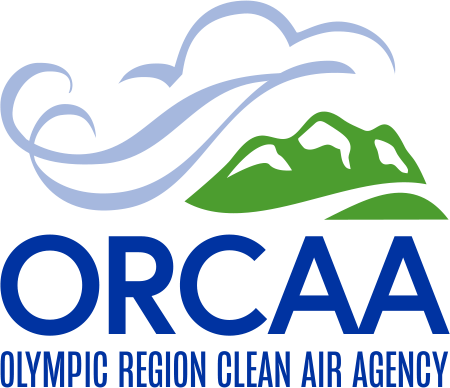Permitting Forms
Businesses, industries, institutions, and municipalities that cause – or have the potential to cause – air pollution are required to annually register with the local air pollution control agency. These are requirements of Washington’s Clean Air Act and apply state-wide (Chapter 70A.15 RCW). Businesses located within Clallam, Grays Harbor, Jefferson, Mason, Pacific, and Thurston counties are regulated by Olympic Region Clean Air Agency (ORCAA).
ORCAA registers businesses that emit air pollution to regulate and enforce compliance with applicable air regulations and standards. Registration involves submitting air-related information to ORCAA when requested and cooperating during periodic air inspections. Information gathered through annual registration is used to verify compliance with air standards and to compile an air pollutant emissions inventory for ORCAA’s region.
How to Register
If your facility emits air pollution but is not presently registered with ORCAA, call ORCAA’s Engineering Staff to start the registration process and determine if you need a permit.
Are there any exemptions?
Exemptions specific to each category of equipment may apply. These are listed in ORCAA Rule 4.1. Please contact ORCAA’s Engineering Staff to confirm an exemption applies.
Will ORCAA conduct site inspections?
Yes. ORCAA’s Compliance Staff conducts periodic site inspections of registered facilities. Through inspections, ORCAA determines whether compliance with state, federal, and local air regulations and standards is maintained. In addition, ORCAA’s Compliance Staff responds to and investigates air quality complaints including nuisance dust and odor complaints.
Are there annual Registration fees?
Yes. Facilities registered with ORCAA are assessed an annual fee to cover the costs of the Registration program. Annual registration fees are specified by ORCAA Rule 3.1 and in ORCAA’s Registration Fee Schedule.
Performance Standards and Business Assistance
In addition to permits and registration, performance standards and other requirements may apply depending on the nature and types of equipment and operations. Performance standards and requirements for specific industry categories that are common air pollution sources are summarized in Business Assistance. Performance standards and other requirements are detailed in federal, state, and ORCAA regulations.
Businesses should also be aware of the general prohibitions and standards which apply universally to all equipment and activities that generate air emissions. See the Focus Sheet on this topic.
Registration Classifications (RC)
To determine classification, the following pollutants will be considered: total suspended particulates (TSP), sulfur oxides (SOx), nitrogen oxides (NOx), volatile organic compounds (VOC), carbon monoxide (CO), and toxic air pollutants (TAP).
CLASSIFICATION RC1 – Any source that has an effective Synthetic Minor Order issued pursuant to WAC 173-400-091.
CLASSIFICATION RC2 – Any source with the potential to emit >30 tons per year of any combination of pollutants.
CLASSIFICATION RC3 – Any source with the potential to emit >10 tons per year of any combination of pollutants.
CLASSIFICATION RC4 – Any source, with the potential to emit >5 tons per year of any combination of pollutants.
CLASSIFICATION RC5 – Any source with the potential to emit < 5 tons per year of any combination of pollutants.

